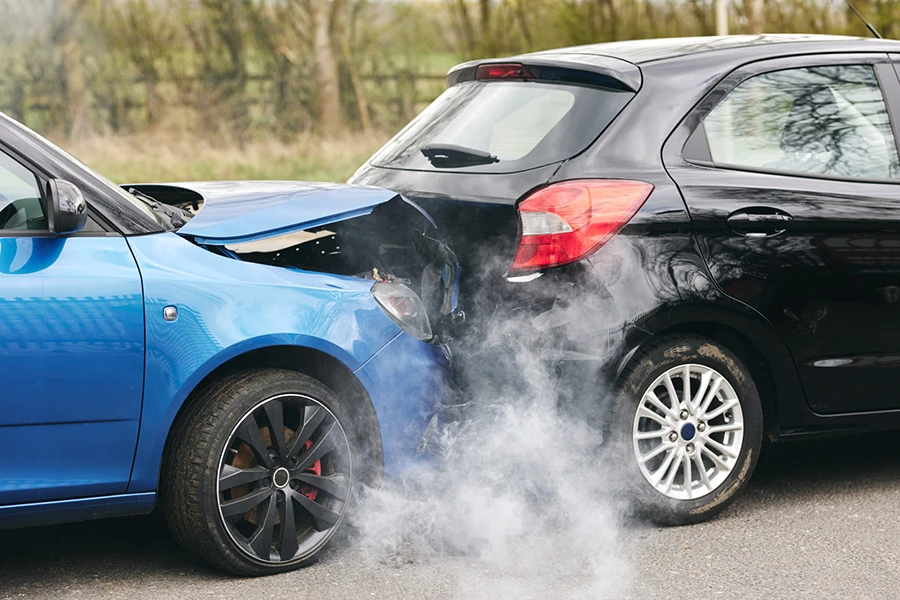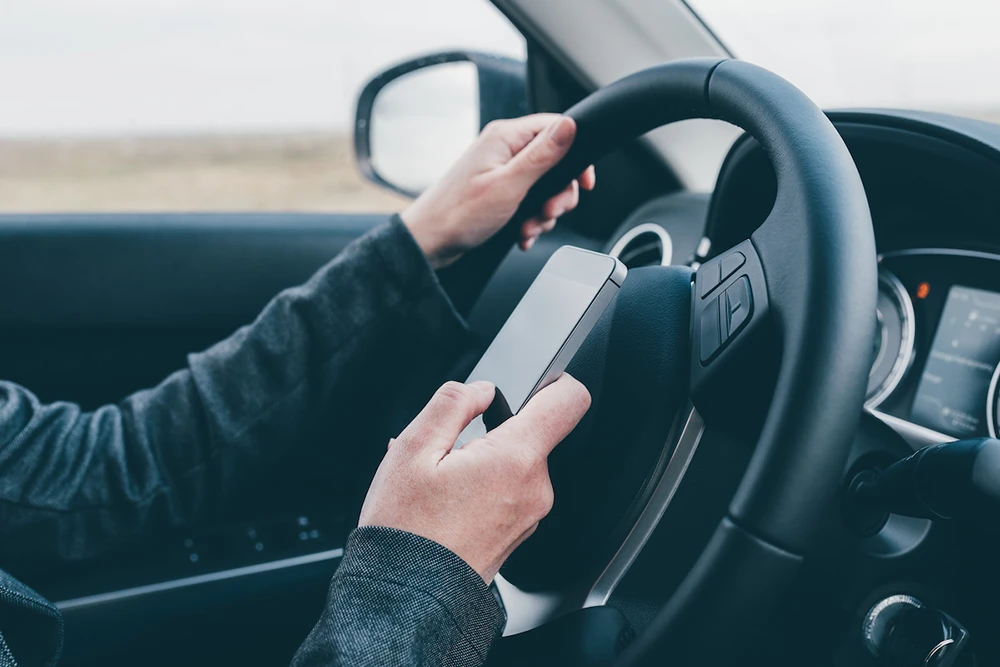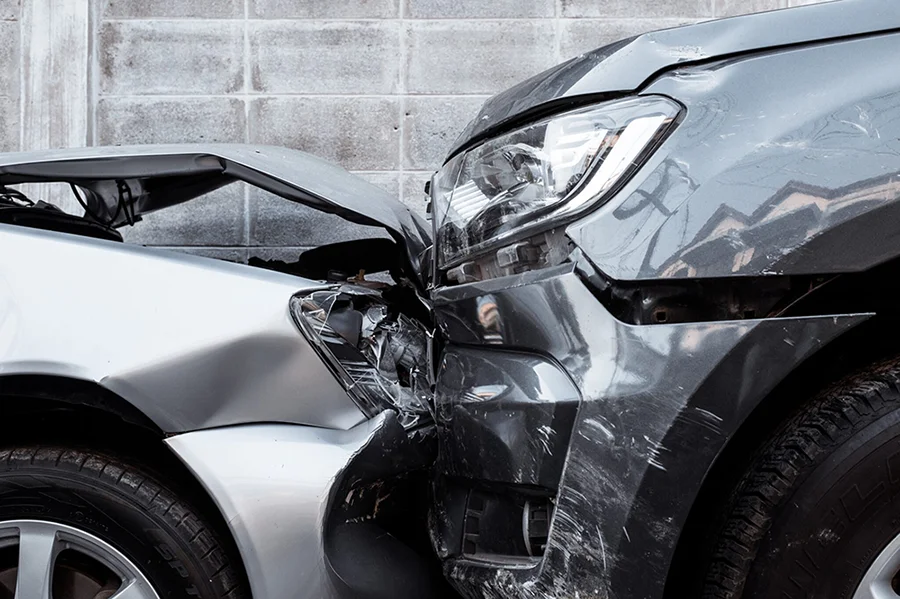
Car accidents are chaotic, often leaving victims shaken and uncertain about the next steps. It can be easy to inadvertently say or do the wrong thing that can end up hurting your settlement or even have you accidentally admitting fault. Knowing what actions to avoid is crucial, both for your personal safety and to avoid potential legal and insurance ramifications. In this comprehensive guide, we’ll explore the common mistakes to avoid after a car accident and provide insights into navigating the aftermath.
What to Do Immediately After a Car Accident
The moments just after a car accident are pivotal. Odds are, there’s a lot going through your mind, but take a deep breath and start from the beginning:
- Ensure Safety First: If you and your passengers are uninjured, get to a safe location. If the car is still driveable, move it to the side of the road out of traffic, but if it cannot be moved, get yourself to a safe area, such as a nearby sidewalk. If the accident occurred on the highway, do not exit the vehicle and keep your seatbelts buckled while you wait for help to arrive.
- Call 911: Regardless of whether the accident is a “minor” fender-bender or a serious accident, it’s crucial to call the police to file an accident report, which will be essential for your insurance company when filing a claim. They can also send medical assistance if you are unsure of injuries.
- Wait for Help to Arrive: As you wait, whether you’re stuck on the road or have pulled over to safety, turn off the engine, turn on your hazard lights, and use any safety items to warn other drivers, such as road flares or triangles.
- Exchange Information: Once you’ve established that no one is suffering from injuries, exchange necessary contact and insurance information with the other driver. Do not discuss accident fault to avoid potential admission. The insurance adjuster will evaluate all the facts when a claim is submitted to determine who was at fault. The only information you should document about the other party includes the following:
- Full name and contact information
- Their insurance company and policy number
- Their driver’s license and plate numbers
- The type, model, and color of the vehicle
- Accident location
- Document the Accident: It’s always best to protect yourself from possible misinformation in the accident by documenting everything you can, such as:
- The name and badge numbers of responding officers
- A copy of the accident report from the police officers
- Take pictures of your vehicle from different angles to show the damage done to both cars, as well as take a photo of the other car’s license plate
- Write down the names and addresses of everyone involved, including passengers in the other vehicle
- Talk to witnesses and get their names and contact information
- Notify Your Insurer: Contacting your insurance provider while still at the scene ensures you can provide them with everything they need to process the claim. They may even be able to arrange for a tow to a nearby certified body shop.
The Impact of Mistakes on a Potential Personal Injury Case
The potential consequences of mistakes after an accident can be significant, even if they seem fairly minor at the time. Here’s what could happen if you say or do the wrong thing after a car accident:
- Limit your ability to receive full or potentially any compensation
- Reduce the value of an insurance settlement
- Lower the chance of filing a successful lawsuit
- Reduce the potential value of a lawsuit settlement or verdict
Despite your best efforts, you may inadvertently still make a mistake. If you do, it doesn’t mean you’re completely out of luck after an accident. An experienced personal injury attorney may still be able to get you the money you are entitled to, but you’ll want to start working with them as soon as possible.
Actions to Avoid After an Accident
There are many actions that can prove detrimental to your personal injury case after a car accident. Some actions can be accidental while others are conscious decisions that have serious legal consequences. Here’s what you should definitely avoid after an accident:
1. Leaving the Scene
Never leave the scene of an accident for any reason. This action is illegal and could have you looking at severe legal consequences, such as a possible misdemeanor or felony charge. Unfortunately, some drivers will panic and drive or run away from the scene, leading to being found at fault even if the other driver caused the accident. Always remain on the scene until law enforcement has authorized your departure.
2. Delaying Medical Attention
Promptly seeking medical attention is crucial. Choosing to delay evaluation or treatment will not only put your health at risk but could also negatively impact your potential legal claim. Receiving medical help and following all physician’s orders can help prevent insurance companies from claiming the injuries are not as bad and even insinuating exaggerated symptoms to pay you less for your claim.
3. Not Gathering Proper Information
Collecting all of the right details at the scene of a car crash is vital to building a strong case. It’s often easy for drivers to be somewhat more dismissive of the details in minor accidents. However, suppose there was hidden damage to your vehicle or a serious injury with delayed symptoms and you don’t have the right details from the other party. In that case, you will have more difficulty filing a claim or obtaining the compensation you deserve. Always be sure you have the address and phone number of those involved and witnesses, as well as the necessary paperwork that may be required by your insurance.
4. Talking Too Much at the Scene and Prematurely Admitting Fault
When you talk with the other driver to gather information, be sure you are only discussing those contact details. Saying something wrong can be viewed as an admission of guilt in a car crash, so it’s best to only discuss the chain of events leading to the accident with the authorities. Even just apologizing for the accident can be viewed as admitting fault. Any time something is said that can be taken as an admission of mistake or fault, you could be found liable for the accident and required to cover the compensation.
5. Skipping the Police Report
Filing a police report is crucial after an accident, no matter how serious or minor it may seem. This report provides you with an official record of the incident, with statements from the other party and any present witnesses, protecting you in the event someone tries to change their story when insurance gets involved. This bit of paperwork can also help support your case when making an insurance claim or filing a personal injury lawsuit.
6. Neglecting to Notify Your Insurance Company
Timely notification to your insurance company is essential. After a car accident, it’s important to begin the claims process as soon as possible to ensure you receive the compensation you deserve to cover the costs of repairs and injuries. Additionally, if you put off filing a claim too long, you could fall outside the statute of limitations for car accidents and end up with nothing.
7. Not Documenting the Scene
Failing to have photos and proper documentation could mean you forget the minute details that could be crucial to your case. Those who are physically able should make it a priority to take photos of the damage and document the scene. If safe, take photos of the accident before moving off the roadway so all evidence can be seen, including weather conditions, road conditions, area traffic, skid marks, and more. There is no such thing as having too many photos and written details after a car crash.
8. Overlooking Witness Statements
Insurance companies will do everything they can to avoid paying out. If there are no witness statements to support your claim, your case could be twisted to appear as though you were at fault or make it more difficult to prove who was at fault. Witness statements can help corroborate your version of events and add credibility to your case. If you do gather information from witnesses, be sure also to take down their names and contact details.
9. Not Tracking Related Bills and Expenses
In order to receive compensation for injuries or vehicle repairs, involved parties need to be able to show how much money was paid to medical facilities, repair shops, and other related places. Without receipts or other documentation, it’s difficult to prove how much money you’re entitled to, which could result in reduced compensation. Keep track of any and all expenses related to the accident, keeping all paperwork together so it’s easy to find when necessary.
10. Not Consulting a Personal Injury Attorney
A personal injury attorney after a car accident can be a big help in guiding you through the complex legal process and ensure your rights are protected. They can help you avoid mistakes, provide evidence, and ensure the settlement you receive is sufficient to cover all of your costs. The right attorney will also keep you from being taken advantage of, especially if you’re trying to heal from physical injuries.
Make the Right Choice After an Accident. Call Simon Law for Help.
In the aftermath of a car accident, making informed decisions is crucial, and being mindful of these common mistakes can make a significant difference in the outcome of a lawsuit. By avoiding these pitfalls, you can more effectively navigate the complexities and secure the best possible outcome.
Don’t let common mistakes jeopardize your potential case. Contact the experienced personal injury attorneys at the Simon Law Firm and ensure you receive the compensation you deserve.


